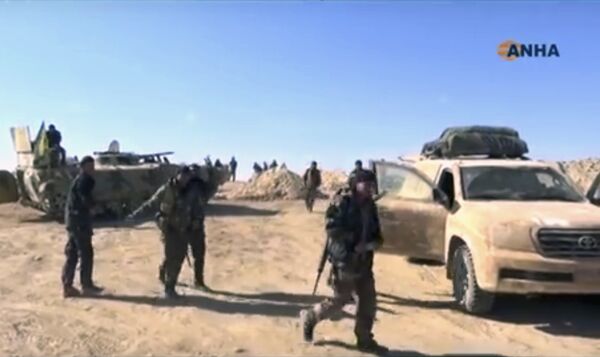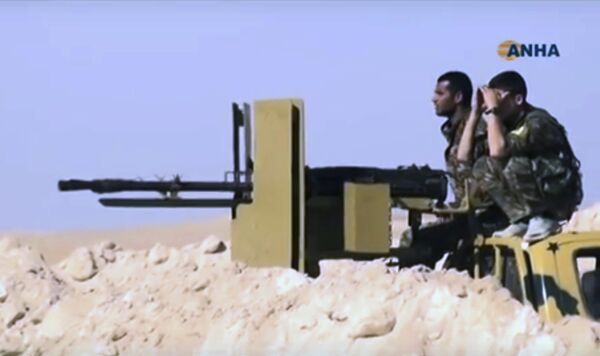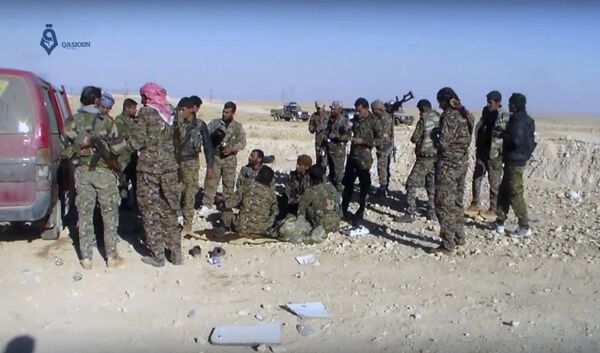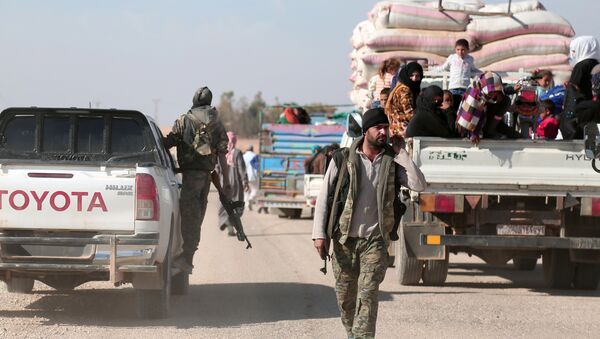On November 6, the US-backed and Kurdish-led Syrian Democratic Forces (SDF) announced the launch of an operation dubbed “Wrath of the Euphrates” to retake the Daesh (ISIS, Islamic State) stronghold of Raqqa in Syria.

The announcement came just days before the final day of the US presidential elections and shortly after a similar operation was launched in Iraq to retake the country's second largest city of Mosul.
Radio Sputnik sat down with Renad Mansour, Iraq expert at Chatham House, the London-based Royal Institute of International Affairs, to discuss what is the real purpose behind the offensive and what difficulties might be encountered.
"To some extent, it is kind of a strategic move of outgoing President Obama, who is trying to end off his presidency with a few massive military victories over the Islamic State," he told Radio Sputnik.
The real hope is, he said, if not to achieve such a victory, than at least gain the momentum which will lead to further success.
The expert explained how the offensive could become a success, as it is happening "at a very important time."
"The Islamic State in Iraq and in Syria is going through an existential crisis and they are losing a narrative game," he said.
"For the first time they have been shown not as a victorious group and it is the perfect time to take advantage of the anxiety that Daesh leadership is currently experiencing to continue and try to win the narrative," he said, referring to the achievements of Iraqi forces near Mosul.
Renad Mansour however pointed out what difficulties the operation might encounter.
"It is going to be difficult. It is probably going to be more difficult than the current battle for Mosul which is going on in Iraq," he said.

The people in Raqqa are not sure what is going on anymore, he explained. Initially, they started to move against the regime of Bashar Assad, but it seems that most of the international powers are now negotiating on a settlement and the regime is still very much intact, largely due to the support of Russia and other groups. And so the people of Raqqa are a little bit suspicious and worried about what will come next, even if they are looking for alternatives to Daesh.
To complicate matters even more, he said, the population in Raqqa is wondering why the operation is led by the Kurdish-led group, out of all the groups battling on the ground.

The Kurdish groups are more interested in Rojava, which is the Kurdish area of Syria, he explained. Hence the Kurdish-led SDF are looking to ensure that out of this battle and out of what happens in Raqqa and elsewhere in Syria they are able to solidify their planned autonomy. This is probably their number one priority, and only then comes the priority to remove Daesh from Syria.
Besides, he said, there is a lot of confusion and no concrete military plan as there is, for example in Iraq. Even the political plan is somewhat blurred, he said.
Raqqa, in turn, is largely a symbolic capital of the so-called Caliphate. It was the third major city it took and it is the most advanced city considering how many people from Mosul had to go to Raqqa for the basic services not been provided in Mosul.
But Daesh certainly won't give up the city without fighting, which is why it is going to be a very difficult battle, he suggested.


